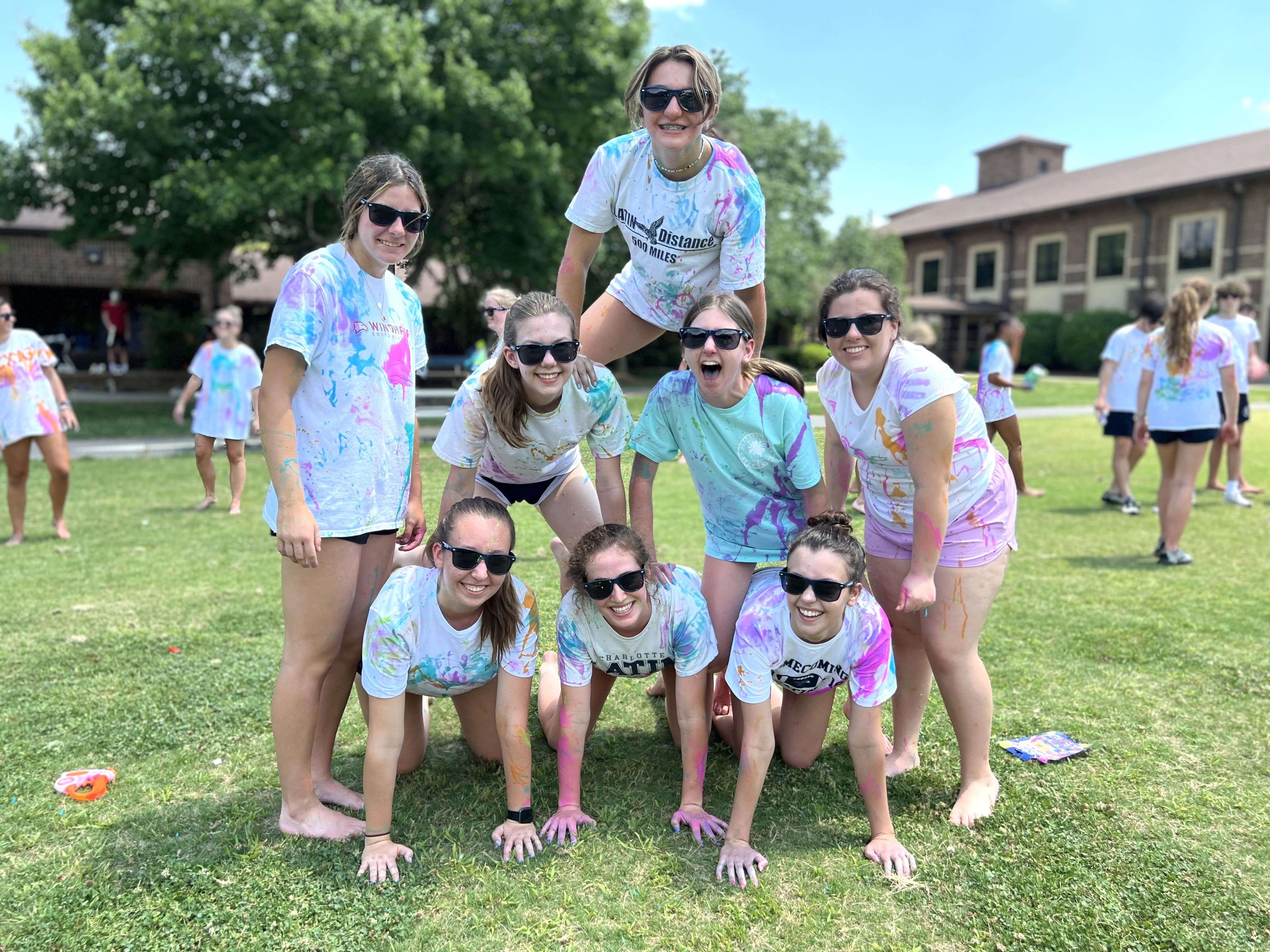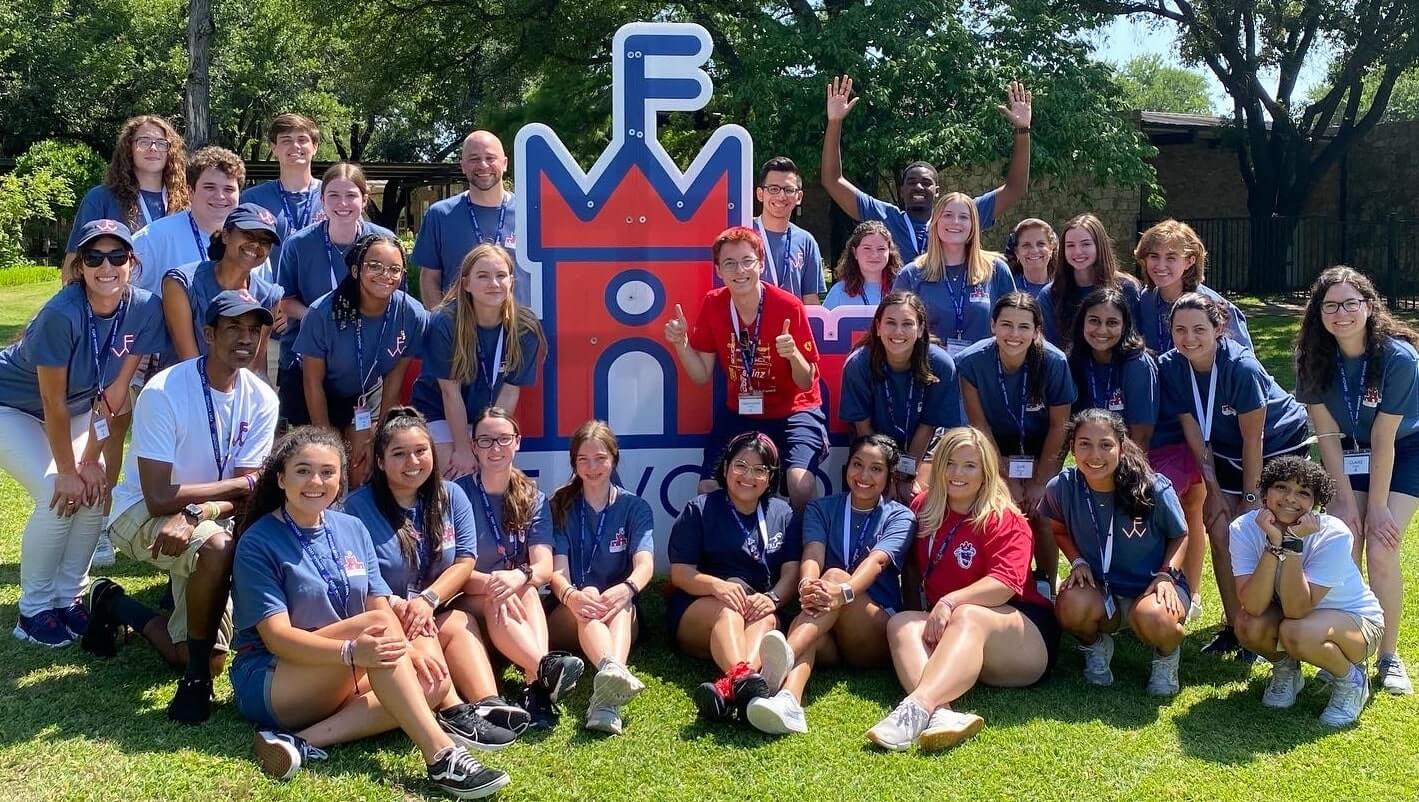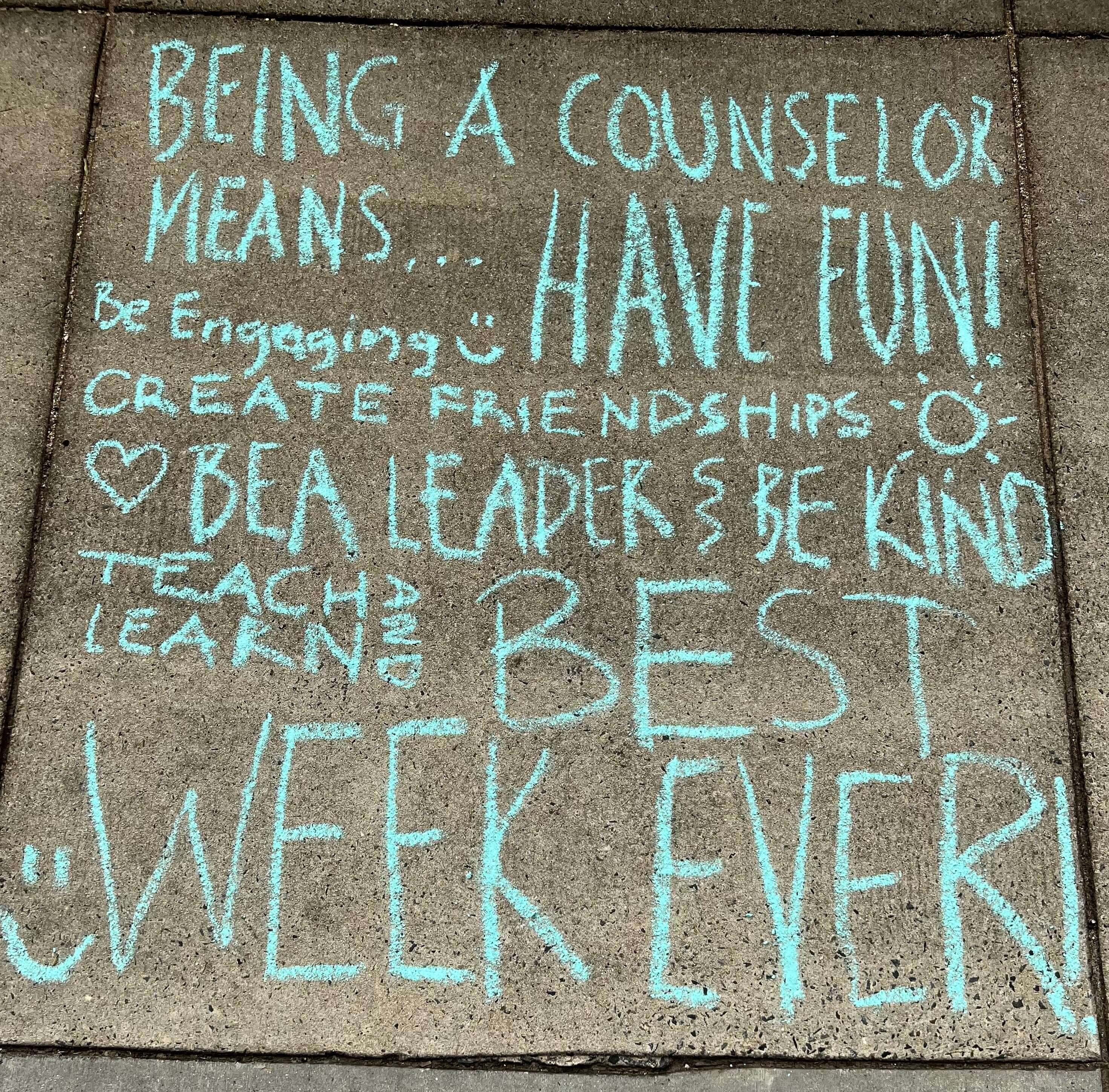"SPRING TRAINING SERIES:" SPARC’S HOME RUN APPROACH TO STAFF TRAINING

Photo courtesy of Fort Wonder at Fort Worth Country Day School.
After knocking it out of the park in 2022, the SPARC Spring Training Series returned this season, providing auxiliary and camp leaders the opportunity to delve deeper into best practices for staff hiring, onboarding, and training. This three-part series engaged attendees in discussion, demonstration, and small-group break out discussions during 90-minute Zoom sessions, and also provided asynchronous resources in the form of pertinent articles, reflection tools, and documented peer wisdom. Over 75 SPARC members and business partners attended this year’s Series, honing their skills and reinvigorating their staff procedures and programming.
“Field managers” and SPARC Senior Advisors, Bob Rojee and Karen McCann McClelland, emphasized the importance of continued improvement, even for long term leaders in the auxiliary industry. Tried and true should be seen as a foundation for further evolution. Talking the talk and walking the walk, this year they introduced the SPARC Compass - a tool customized by each user, intended to optimize the scheduling and delegation of existing tasks within a department to allow additional time and energy for this continued improvement. Staff hiring, training, and activities designed to further build camp culture all benefit when leaders have the necessary time to develop more robust content without sacrificing other responsibilities or risking burnout.
Looking back on this year’s Series, SPARC is excited to offer our top ten recommendations for auxiliary leaders integrating seasonal staff into their programs - born of the enthusiasm and drive (as well as the collective efforts) that emerged from membership collaboration during these sessions.
1. Kaizen Approach
Formed from a compound of two Japanese words meaning “good change” or “improvement,” Kaizen embodies the notion of “continuous improvement.” Even an old dog can learn new tricks! SPARC members include veteran directors with 25+ years of experience as well as those facing their first summer training in just a few weeks. Leaders can, and should, be role models for growth mindset, self-reflection, and proactive pursuit of new skills and strategies. Before the hiring season even begins, leaders old and new should take the time to identify their goals for continued improvement this year.
2. Embrace the Process
Recruiting, retaining, and training staff is a process! The most effective processes are the result of proactive planning, development of a game plan, and digging deep to find your ‘why’ for each component. Good work takes effort, great work takes time! SPARC members who attended Spring Training were encouraged to explore how to extend their processes from seasonal to 12-months, identifying “off-season” strategies for recruiting and retaining talented staff. By attending these sessions, participants demonstrated their commitment to embracing the process of both dissecting their existing plan as well as the process of rebuilding it stronger than before. It can be difficult to resist the urge to repeat “what we’ve always done,” but the Series allowed members to hear from the experts as well as each other, opening their eyes to a myriad of possibilities to enhance (and embrace!) the process.

Photo courtesy of Charlotte Latin Summer Camps.
3. Build Your Team: Find Your Allies and Partners
Training should never be a one-person show! Leaders can be stronger and more impactful when they find allies and leverage the talents and expertise of those around them. SPARC once again employed a “show-don’t-tell” approach by inviting additional facilitators each week to highlight and share their own experiences for the benefit of others. Whether a department of twelve or a department of one, you are not alone! Leaders should seek out colleagues and departments in their school community who can contribute - Human Resources, Business Office, Security, Health Services, Communications, and Facilities. Further resources and connections are also available during regular SPARC webinars, roundtables, online office hours, the web-based Resource Library, and the online Member discussion boards.
4. Build Camp Culture and Community at Every Possible Step.
From your first impression of a potential staff member when they visit your website, to the interview questions, to the onboarding process and in-person staff training, there are numerous opportunities to build and create an intentional camp culture. Facilitators reminded attendees to identify the opportunities to sell and create buy-in of your mission and purpose. Laura Walker, Director of Summer Day Camps at Charlotte Latin School, shared the various techniques she uses to infuse “campiness” from the initial stages of recruitment through staff training and the entire summer. During break-out sessions, participants shared activities and ideas on how they introduce routines and traditions, and how they build on the energy and enthusiasm of the staff to deliver the highest quality experiences. Connecting with colleagues that have done this successfully, hearing their stories, and reviewing the shared brainstorm list after each session served as an invaluable resource.

Photo courtesy of Fort Wonder at Fort Worth Country Day School.
5. Look Back to Move Forward
Each season, auxiliary leaders should reflect on their process and conduct a 360° evaluation. Consider the perspective of all constituents - new applicants, returning staff, HR or other departments that collaborate on the process - and identify ways you can optimize and improve throughout the year. Connect with other SPARC members to hear about the different ways they tackle the same challenges - or offer up a successful method that has worked well for you. Next season starts now - be intentional about your actions this summer and be thinking about retention as you observe summer staff and complete evaluations. How can you tap into current staff for leadership roles to keep them growing? How can you mentor new and younger employees so they can also grow? Can you retain some of your summer staff for part time school year roles? Looking back can often assist leaders in finding the best path forward.
6. Identify Specific Outcomes and Objectives
Participants in this year’s series considered how to best find the balance among what their staff must know, what they should know, and what they could know. Aiming for everyone to leave training “ready to be good at their job” doesn’t allow a director to develop the most effective training, and doesn’t allow staff to fully reach their potential throughout the summer. Content, games, and training materials should support specific training outcomes and learning objectives. What should your staff be able to do after each segment of training? How will they demonstrate these outcomes? What will each outcome look or sound like to campers, families, and other staff members? What are the non-negotiable skills your staff must practice and demonstrate during training to ensure your campers have a safe and fun experience? Analyzing a vague goal to identify a set of specific, prioritized intentions will take your training to the next level.
7. Curate Content, Dazzle with Delivery
Content is nothing without delivery. Leaders must develop and prioritize content, and then bring it to life through exceptional delivery. The SPARC Spring Training Series provided a comprehensive list of things that need to be included in your training - from compliance and licensing regulations to emergency procedures and daily operations. Leaders used the 2023 Spring Training Content & Delivery Worksheet to explore impactful ways to develop and deliver content. These include being conscious of various learning styles, identifying content that can be provided ahead of in-person training, and considering the use of online or video training. -(A number of the SPARC business partners specialize in these video trainings to cover boundary training or first aid/safety topics.) When concentrating on delivery, check in with your HR department and see if there are resources you can tap into for free. Engage returning and veteran staff to deliver content, keeping them involved and empowered. Integrate campus tours and immersive role playing to review operational procedures such as carpool and lunch - or even better, plan a scavenger hunt or dress up game to increase the fun and set the appropriate tone for the summer.

Photo courtesy of Charlotte Latin Summer Camps.
8. Feedback & Training: The Gifts that Keep on Giving
The final day of training doesn’t take place until the final day of camp. Leaders must plan the arc and the scope of their summer training - when do staff need which skills? When are there opportunities to revisit a topic from preseason training during the summer? How can continued personal and professional improvement (Kaizen!) be supported through six, eight, or ten weeks of camp? Staff meetings, email communications, online website “hubs,” or one-on-one check-ins are all valid tools for keeping the lessons of preseason training alive and building upon their foundation. Directors and middle managers should review goals and expectations defined at the beginning of the summer and use them for feedback and evaluation - this year’s feedback and training are investments in your “farm team” for future seasons!
9. Choose a Compass, Not a Map
Auxiliary leaders must keep themselves and their teams going in the right direction along this journey by documenting successes and failures along the way. Collect these moments like souvenirs. Keep a journal,.Make a list. Create a Great Ideas envelope (thanks, Laura Walker!) to capture stickies and scraps of paper where you’ve collected ideas. These lessons become your compass - not your map - there to guide you and shape the adventure along the way, not a static path that won’t change. Once the end goals are identified, a compass will allow you the chance to lay out the best path to get there. Capture these lessons along the way and adjust your path as needed. Add new tasks and refine existing ones in your Compass so you can be more effective and efficient for Summer 2024!

Photo courtesy of Charlotte Latin Summer Camps.
10. Measure the Magic, Find the Joy
Attendees were reminded to incorporate times in their training to reinforce the goals and mission of their programs. Take time to remember (and remind) staff of the impact they are having. How will your staff know when they have met those goals? When will your counselors know they are making a difference? What will the quintessential camp moments look, feel, or sound like? Make time during the training and throughout the summer to measure and capture those magical moments. Leaders plan all year for summer and it is an incredible time. Despite any stress or exhaustion, they must take time to be intentional about how they can find joy in the work they do, and how to bring out the best in their staff and themselves each and every day. The Spring Training Series reminded us all to be grateful each day that we have the privilege to do this difficult and rewarding work.

Photo courtesy of Fort Wonder at Fort Worth Country Day School.
"Spring Training" Participant Reflections:
"So happy to be a part of this group... I always leave feeling pumped up again to tackle any challenges."
"As always, any and all of what you do is informative and insightful. I enjoy hearing from other programs to gain perspective, set a bar and find new ways of approaching problems."
"This year has been somewhat difficult with hiring a completely new team, including myself. I tried to use similar strategies for seeking counselors, conversations with them, and our hiring process. It has reinforced why having a set timeline (that can be tweaked) is important."
“These meetings always help me revive my camp spirit! Thanks for helping keep fun alive!”
“So many stickies (ideas)! My gerbil is running!”
